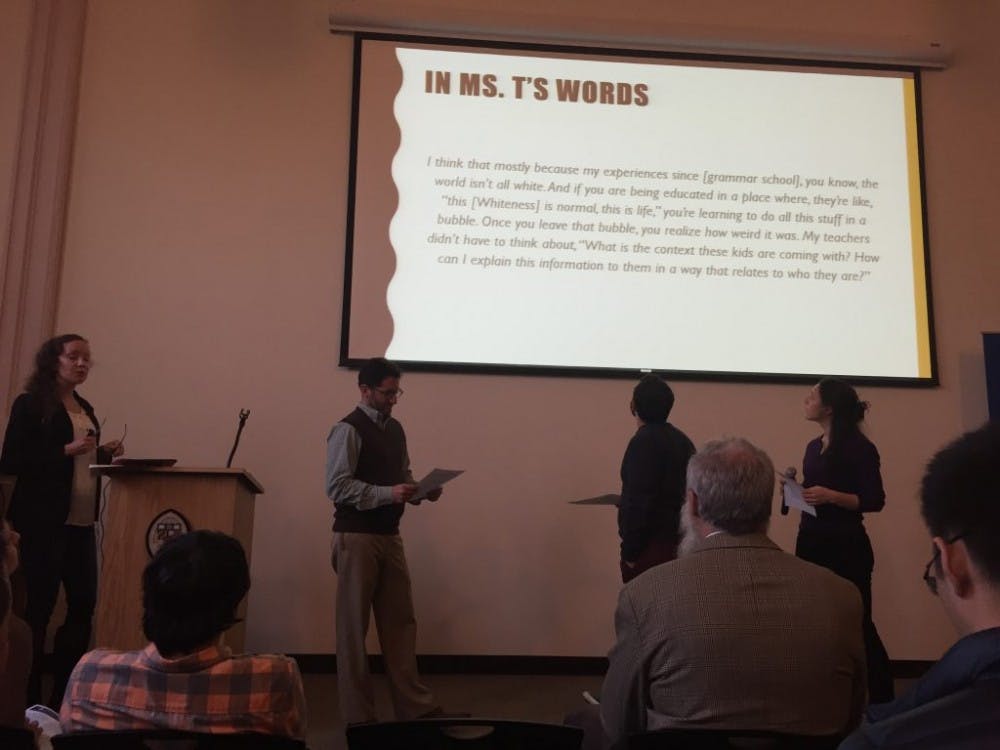As part of the Urban Health series on understanding racism and white privilege, the Johns Hopkins School of Education held a seminar open to the general public on Wednesday, Feb. 22 led by Christina Berchini.
An assistant English professor at the University of Wisconsin—Eau Claire, Berchini shared her research and observations about racism and white privilege in an academic environment.
Berchini suggested “reader’s theater,” an exercise where individuals act out scripts of possible situations, as a way to train teachers to facilitate conversations about race in the classroom.
“What we do know from studies that have been conducted with undergraduates, but also professionals in other fields like nursing and business, is that reader’s theater encourages deep exploration of text and also provides an opportunity for critical reflection,” she said.
Berchini selected people to come to the front and asked them to perform short scenes centered on classroom experiences of teachers who dealt with race and privilege. She then analyzed these scenes in a discussion format by taking into consideration the audience’s opinions.
“This is actually reminiscent of the research in teacher education when the topic is about white privilege, whiteness and trying to get white preservice teachers to deconstruct their privilege,” she said. “The research has said that there is a defensiveness, a hopelessness and a denial, which are the same sorts of things that seem to be going on here.”
After her 45 minute presentation, Professor Berchini opened up the floor to questions from the audience.
An audience member who participated in the short skit commented on culturalism from a counseling perspective.
“What really has to become a part of who we are is going out and actually seeing social injustices and being willing to advocate,” he said. “A lot of people need to get educated on the concept of white privilege and how this is benefiting some and keeping others at the bottom.”
Another audience member questioned how the teacher in the skit handled himself in facilitating the discussion with his students, and Berchini responded that educators all face challenges.
“The teacher can be said to be screwing up at certain points here. I would argue that anyone of us wouldn’t quite know what to do in the moment. So mistakes are going to be made, and there are going to be lost moments,” Berchini said.
Cynphany Brown, a 2015 graduate of the University of Maryland felt that the seminar could have explored some issues to a fuller extent.
“I think it distracted and maybe added some points here or there, but it didn’t get as deep as I thought it would get,” she said. “I say distracted because it had a lot of scientific terms and big words to basically say that some white people who are first year teachers teach off of experience and knowledge.”
She also described her motivation for coming to the lecture.
“I saw that [the lecture] was a white woman talking about white privilege, so I wanted to hear her perspectives,” Brown said. “I am the type of person who is as open-minded as I try to be, and since she has two more lectures that continue this series, I am going to go and see what more there is to say to see if anything can be added, changed or challenged to my current way of thinking.”





